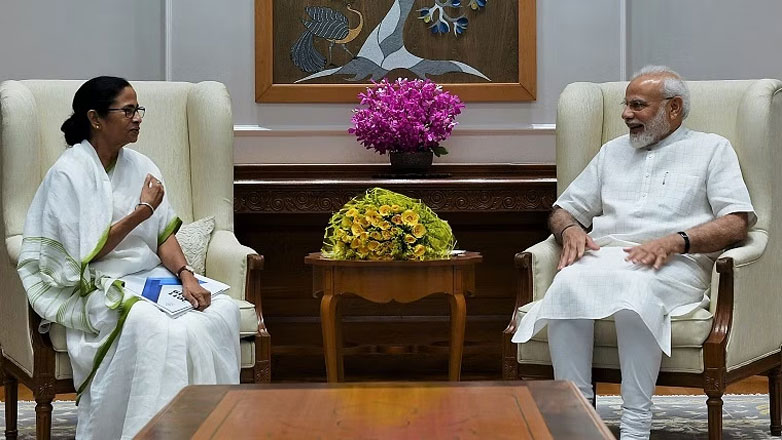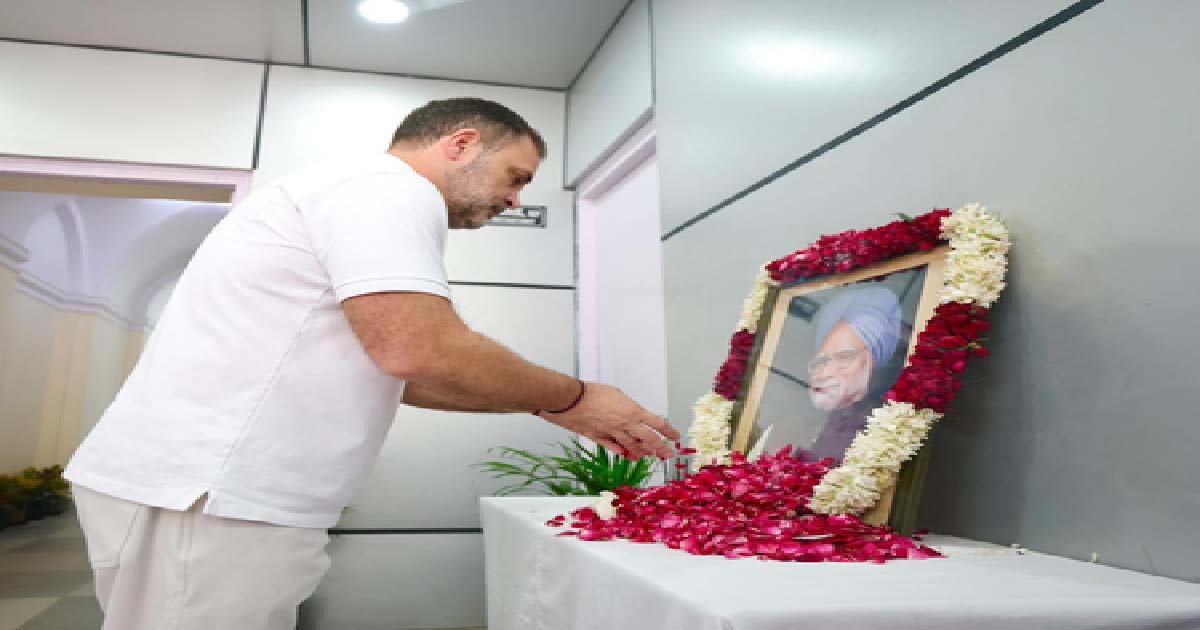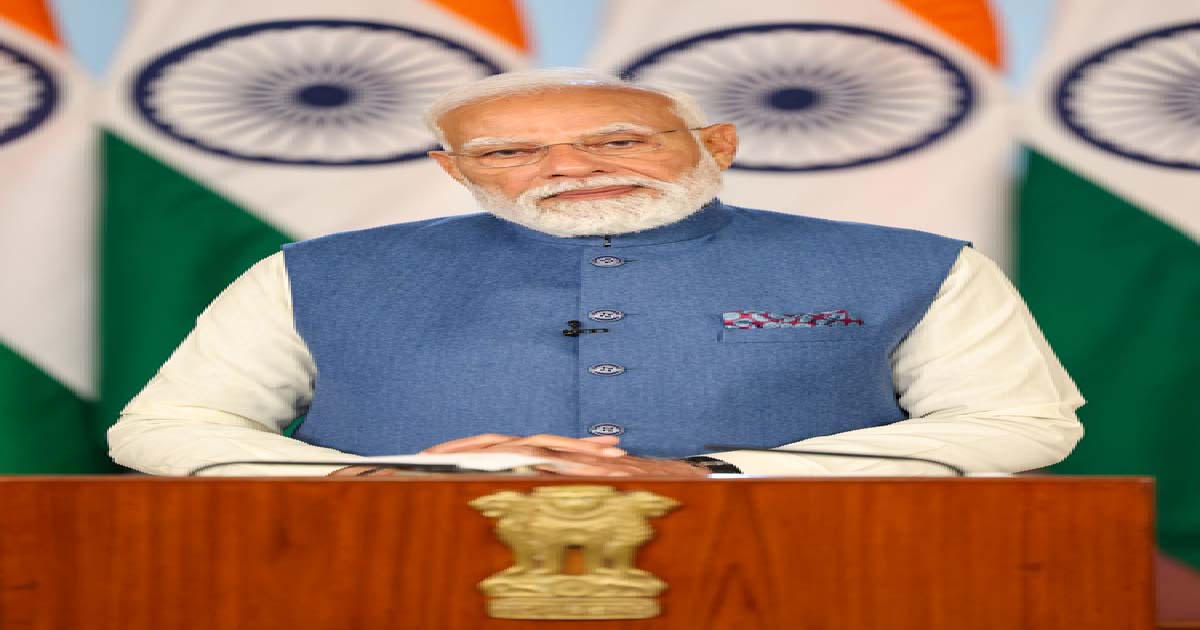National News
West Bengal CM Mamata Banerjee Sends PM Modi, President Murmu Bengal’s Best Variety Mangoes

West Bengal Chief Minister Mamata Banerjee on Wednesday sent top varieties of the state’s mangoes to President Droupadi Murmu and Prime Minister Narendra Modi. She has been continuing this practice for several years despite her fractured relationship with the Union Government. The seasonal fruit was also sent to Chief Justice of India DY Chandrachud, a well-placed source said. “The mangoes were sent in decorative boxes. The boxes contain Himsagar, Fazli, Langra and Laxman Bhog variety of mangoes,” the source said. According to a reliable source, Chief Justice of India DY Chandrachud also received seasonal fruit.
“Decorative boxes were used to ship the mangoes. According to the source, the boxes include Himsagar, Fazli, Langra, and Laxman Bhog varieties of mangoes. In a few days, the boxes will reach New Delhi. Last year, she sent mangoes to Congress leader Sonia Gandhi as well as her Delhi counterpart Arvind Kejriwal. Reportedly, she began the tradition in 2011 when she first became CM.
Banerjee had sent PM Modi a kurta-pyjama and treats
CM Banerjee presents PM Modi sweets in addition to mangoes. Modi disclosed in 2019 that the TMC chief sent a kurta-pyjama and sweets on the occasion of Durga Puja. “I have many friends in opposition parties. You will be surprised to know that Mamata didi even now personally selects one or two kurtas for me every year,” he stated in an interview with Bollywood actor Akshay Kumar.
National News
‘Through visionary leadership, he empowered India economically’: Rahul Gandhi on Manmohan Singh’s death anniversary

New Delhi, Dec 26: Leader of Opposition in the Lok Sabha, Rahul Gandhi, on Friday paid tribute to former Prime Minister Dr Manmohan Singh on his death anniversary, describing him as a visionary leader whose policies empowered India economically and strengthened the nation’s global standing.
Rahul Gandhi also paid floral tributes to Manmohan Singh on his first death anniversary at Congress office at 24, Akbar Road, New Delhi.
Taking to social media platform X, Rahul Gandhi said, “Humble tribute to former Prime Minister of India Dr. Manmohan Singh ji on his death anniversary.”
He further said that Dr Singh’s leadership transformed India’s economy and uplifted millions.
“Through his visionary leadership, he empowered India economically. His historic efforts and bold decisions for the underprivileged and poor in the country gave India a new identity on the world stage. His humility, hard work and honesty will always be an inspiration to all of us,” Rahul Gandhi said in his post.
Dr Manmohan Singh, India’s 14th Prime Minister, is widely acknowledged as a distinguished economist, thinker, and scholar. He is remembered for his diligence, academic approach to governance, accessibility, and unassuming demeanour, qualities that defined his long and illustrious public career.
Born on September 26, 1932, in a village in the Punjab province of undivided India, Dr Singh displayed academic excellence from an early age. He completed his matriculation from Punjab University in 1948 before embarking on a remarkable academic journey abroad.
Dr Singh earned a First Class Honours degree in Economics from the University of Cambridge in 1957 and went on to complete a D.Phil in Economics from Nuffield College, Oxford University, in 1962. His seminal book, ‘India’s Export Trends and Prospects for Self-Sustained Growth’, published by Clarendon Press, Oxford, in 1964, offered an early critique of India’s inward-looking trade policy and reflected his deep understanding of economic development.
His academic credentials were further strengthened through his teaching assignments at Punjab University and the prestigious Delhi School of Economics. He also served briefly at the United Nations Conference on Trade and Development (UNCTAD) Secretariat, which later led to his appointment as Secretary-General of the South Commission in Geneva between 1987 and 1990.
In 1971, Dr Singh joined the Government of India as Economic Advisor in the Ministry of Commerce. He was appointed Chief Economic Advisor in the Ministry of Finance in 1972, marking the beginning of his influential role in shaping India’s economic policies.
Over the years, Dr Singh held several key positions in public service, including Secretary in the Ministry of Finance, Deputy Chairman of the Planning Commission, Governor of the Reserve Bank of India, Advisor to the Prime Minister, and Chairman of the University Grants Commission.
Dr Singh’s tenure as Finance Minister from 1991 to 1996 proved to be a watershed moment in India’s economic history. At a time of severe balance-of-payments crisis, he introduced wide-ranging economic reforms that liberalised the economy and laid the foundation for sustained growth. These reforms earned him global recognition and remain inseparably linked to his vision and leadership.
Throughout his lifetime, Dr Singh received numerous national and international honours. Among the most notable were the Padma Vibhushan in 1987, the Jawaharlal Nehru Birth Centenary Award of the Indian Science Congress in 1995, and multiple international accolades, including the Asia Money and Euro Money awards for Finance Minister of the Year. He was also conferred honorary degrees by leading universities such as Cambridge and Oxford.
Dr Singh represented India at several international forums and led delegations to major global conferences, including the Commonwealth Heads of Government Meeting in Cyprus and the World Conference on Human Rights in Vienna in 1993.
In his political career, Dr Manmohan Singh served as a member of the Rajya Sabha from 1991 and as Leader of Opposition between 1998 and 2004. He was sworn in as Prime Minister on May 22, 2004, and assumed office for a second term on May 22, 2009, leaving behind a legacy of integrity, intellect, and service to the nation.
Business
Govt committed to boost ease of living, continue reform trajectory, says PM Modi

New Delhi, Dec 26: Prime Minister Narendra Modi on Friday said that his government is committed to boosting ‘Ease of Living’ and the reform trajectory will continue with even more vigour in the coming times.
Replying to a thread on X social media platform posted by the MyGovIndia handle, PM Modi said the government has worked towards the direction of empowering millions.
“Ours is a Government committed to boosting ‘Ease of Living’ and this thread below gives examples of how we have worked in that direction. Our reform trajectory will continue with even more vigour in the coming times,” the Prime Minister stated.
The MyGovIndia handle posted that the real test of reform is whether it reduces stress for people.
“2025 marked a clear shift in governance, with reforms focused on outcomes, not complexity. Simpler tax laws, faster dispute resolution, modern labour codes, and decriminalised compliance reduced friction for citizens and businesses alike. The emphasis was on trust, predictability, and long-term growth, showing how well-designed policy can quietly improve everyday life,” it wrote on the social media platform.
For millions of Indians, tax relief became real. Incomes up to Rs 12 lakh attract zero tax. Middle-class families now retain more of what they earn, giving them flexibility to spend, save and invest with greater confidence.
“A new tax law for a New India. Replacing the 1961 Income-tax Act, the Income Tax Act, 2025 streamlines compliance and brings clarity, transparency, and fairness to the direct tax system, making it more taxpayer-friendly and aligned with today’s needs,” it further stated.
Small businesses can now grow without fear of losing benefits. Higher investment and turnover limits allow MSMEs to expand while retaining access to loans and tax incentives. This encourages scaling up, hiring more workers, and building stronger local enterprises, according to MyGovIndia.
Twenty-nine labour laws were simplified into four clear codes covering wages, safety, social security, and relations. Rights are clearer, compliance is easier, and women benefit from assured maternity and workplace protections, it added.
With streamlined tax slabs, easier registration, automated processes, and faster refunds, the next generation of GST reforms is improving the ease of doing business
“The impact is clear in record Diwali sales of Rs 6.05 trillion and the strongest Navratri shopping in over a decade,” it noted.
Crime
Mumbai Crime: Malwani Doctor Arrested For Allegedly Molesting Minor Girl In Clinic; Unauthorised Practice Suspected

Mumbai: The Malwani police have arrested a 44-year-old doctor following allegations of sexual abuse and molestation involving a 12-and-a-half-year-old girl. The incident reportedly took place within the confines of his clinic during a medical examination, sparking concerns over patient safety and the legitimacy of the practitioner’s medical credentials.
The victim, a resident of the local area, had visited the clinic alone to seek treatment for a lip fracture. , the doctor, a resident of Kandivali who has operated the Malwani-based clinic for several years, allegedly exploited the situation.
The minor alleged that during the procedure, the doctor instructed her to lie down and proceeded to touch her inappropriately. The victim reported experiencing severe mental distress and embarrassment following the encounter, which led to the formal complaint.
Upon receiving the complaint, Police Sub-Inspector Shivaji Mohite registered the initial First Information Report. The case was later handed over to Assistant Police Inspector Prashant Mundhe, who led the investigation and moved to take the accused into custody. According to the report, the 44-year-old has been booked under relevant sections of the Bharatiya Nyaya Sanhita (BNS) and Sections 10 and 12 of the Protection of Children from Sexual Offences (POCSO) Act.
Beyond the criminal charges of assault, the investigation has expanded into the doctor’s professional background. Initial inquiries revealed that while the accused holds a degree in acupuncture, he was allegedly performing a wide range of medical treatments for which he may not have been authorized. Police officials stated that they are currently in the process of verifying all degrees and certificates displayed at the clinic to determine if the accused was practicing medicine beyond his legal scope. The accused was produced before the sessions court on December 24.
-

 Crime3 years ago
Crime3 years agoClass 10 student jumps to death in Jaipur
-

 Maharashtra1 year ago
Maharashtra1 year agoMumbai Local Train Update: Central Railway’s New Timetable Comes Into Effect; Check Full List Of Revised Timings & Stations
-

 Maharashtra1 year ago
Maharashtra1 year agoMumbai To Go Toll-Free Tonight! Maharashtra Govt Announces Complete Toll Waiver For Light Motor Vehicles At All 5 Entry Points Of City
-

 Maharashtra1 year ago
Maharashtra1 year agoFalse photo of Imtiaz Jaleel’s rally, exposing the fooling conspiracy
-

 National News1 year ago
National News1 year agoMinistry of Railways rolls out Special Drive 4.0 with focus on digitisation, cleanliness, inclusiveness and grievance redressal
-

 Maharashtra1 year ago
Maharashtra1 year agoMaharashtra Elections 2024: Mumbai Metro & BEST Services Extended Till Midnight On Voting Day
-

 National News1 year ago
National News1 year agoJ&K: 4 Jawans Killed, 28 Injured After Bus Carrying BSF Personnel For Poll Duty Falls Into Gorge In Budgam; Terrifying Visuals Surface
-

 Crime1 year ago
Crime1 year agoBaba Siddique Murder: Mumbai Police Unable To Get Lawrence Bishnoi Custody Due To Home Ministry Order, Says Report












